Returning scholar and Irish Farmers Journal vet Tommy Heffernan spoke of “the stress gap“ that affects the cow and the consumer.
“There is a serious problem globally. One of the first farmers I met in Germany, with tears in his eyes, told me his children was being ostracised as they were farmers.”
On the cow stress gap, the vet said that the further the cow is from what she wants, the more stressed she is. Proposing a grass-based welfare benchmark to minimise any cow stress, Heffernan recommends that one of the key metrics on dairy farms should be longevity.
Consumers have left science behind them and it is all about emotions
“If we maximise the genetics, she will stay in the system longer and be more environmentally efficient.
“There is a consumer stress gap too and this this is when the stories and realities do not match up. 
Tommy Heffernan.
“We need profitable primary producers but consumers have left science behind them and it is all about emotions. To combat this, professionalism in farming is key to challenging perception issues. There can be no grey areas. We need to identify good people to work with cows and promote transparent, real images of farming,” he said.
Industry funding
Kerry dairy farmer and 2018 scholar Karol Kissane called for increased industry funding for AgriAware or a similar body to support the education of children in primary schools on food and farming.
Upon commencing his travels, Kissane also looked at the area of perception. “Studies show that if you want to change a perception you must engage at a young age and have many different interactions.”
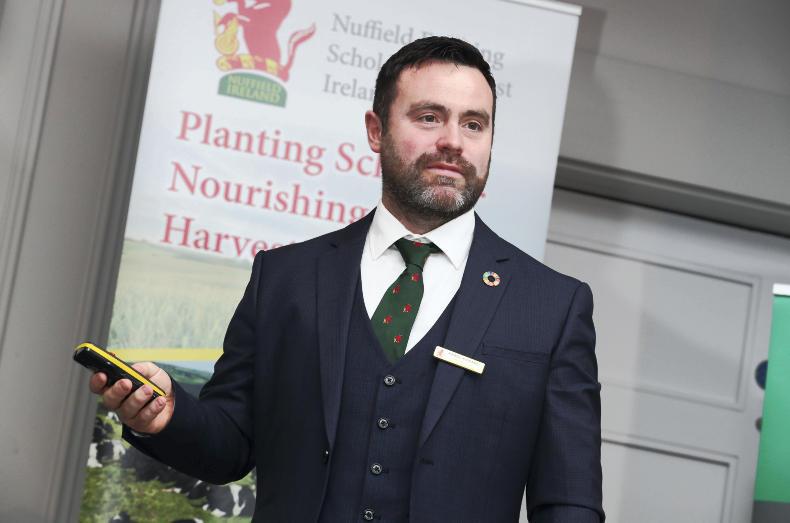
Karol Kissane.
A number of initiatives were explored over the course of his Nuffield travels but the FaceTime a farmer stood out to Karol as the most feasible option for Ireland.
Agriculture can be the tree on which children learn about science technology engineering and maths
“Every farmer has a smartphone. All that is involved is a simple call to a primary school class from the farm once every two weeks. This is a simple educational tool that is working effectively in the UK.”
Environment
He cautioned that there is a need to talk about the environment in tandem with agriculture.
“We are not going to get a standalone agriculture module in primary schools. Agriculture can be the tree on which children learn about science, technology engineering and maths (STEM) while also learning about where their food comes from.
“If we can do this, we can create a future of critical thinkers,” he said.
When queried on how AgriAware was performing relative to other countries in terms of children’s education, he said AgriAware was doing a good job with the budget it has but if the industry is serious about educating children that are now ever further from the farm gate, AgriAware needed the industry to step in with proper funding.
Read more
Nuffield conference: alternative crops can store twice as much carbon as trees
Plant-based foods have a higher carbon footprint than meat and dairy
Returning scholar and Irish Farmers Journal vet Tommy Heffernan spoke of “the stress gap“ that affects the cow and the consumer.
“There is a serious problem globally. One of the first farmers I met in Germany, with tears in his eyes, told me his children was being ostracised as they were farmers.”
On the cow stress gap, the vet said that the further the cow is from what she wants, the more stressed she is. Proposing a grass-based welfare benchmark to minimise any cow stress, Heffernan recommends that one of the key metrics on dairy farms should be longevity.
Consumers have left science behind them and it is all about emotions
“If we maximise the genetics, she will stay in the system longer and be more environmentally efficient.
“There is a consumer stress gap too and this this is when the stories and realities do not match up. 
Tommy Heffernan.
“We need profitable primary producers but consumers have left science behind them and it is all about emotions. To combat this, professionalism in farming is key to challenging perception issues. There can be no grey areas. We need to identify good people to work with cows and promote transparent, real images of farming,” he said.
Industry funding
Kerry dairy farmer and 2018 scholar Karol Kissane called for increased industry funding for AgriAware or a similar body to support the education of children in primary schools on food and farming.
Upon commencing his travels, Kissane also looked at the area of perception. “Studies show that if you want to change a perception you must engage at a young age and have many different interactions.”

Karol Kissane.
A number of initiatives were explored over the course of his Nuffield travels but the FaceTime a farmer stood out to Karol as the most feasible option for Ireland.
Agriculture can be the tree on which children learn about science technology engineering and maths
“Every farmer has a smartphone. All that is involved is a simple call to a primary school class from the farm once every two weeks. This is a simple educational tool that is working effectively in the UK.”
Environment
He cautioned that there is a need to talk about the environment in tandem with agriculture.
“We are not going to get a standalone agriculture module in primary schools. Agriculture can be the tree on which children learn about science, technology engineering and maths (STEM) while also learning about where their food comes from.
“If we can do this, we can create a future of critical thinkers,” he said.
When queried on how AgriAware was performing relative to other countries in terms of children’s education, he said AgriAware was doing a good job with the budget it has but if the industry is serious about educating children that are now ever further from the farm gate, AgriAware needed the industry to step in with proper funding.
Read more
Nuffield conference: alternative crops can store twice as much carbon as trees
Plant-based foods have a higher carbon footprint than meat and dairy







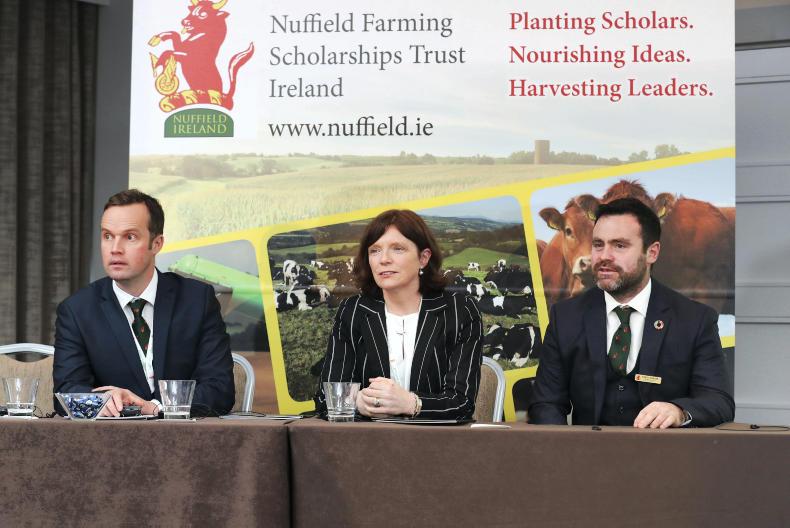
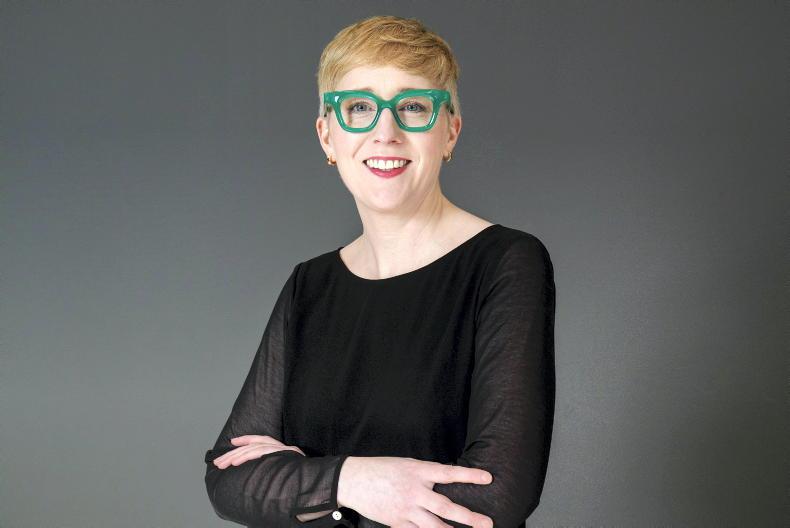
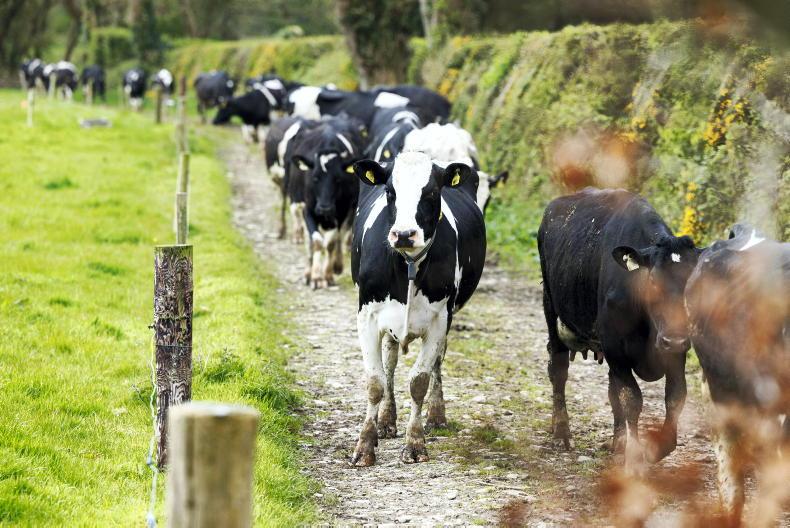

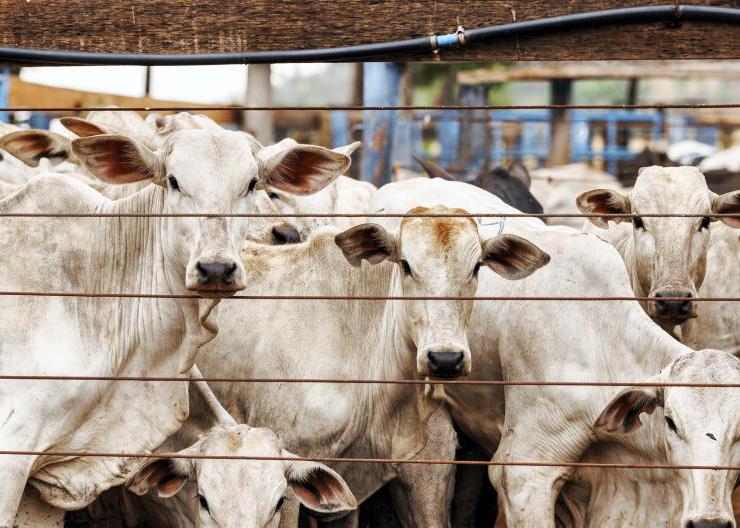
SHARING OPTIONS